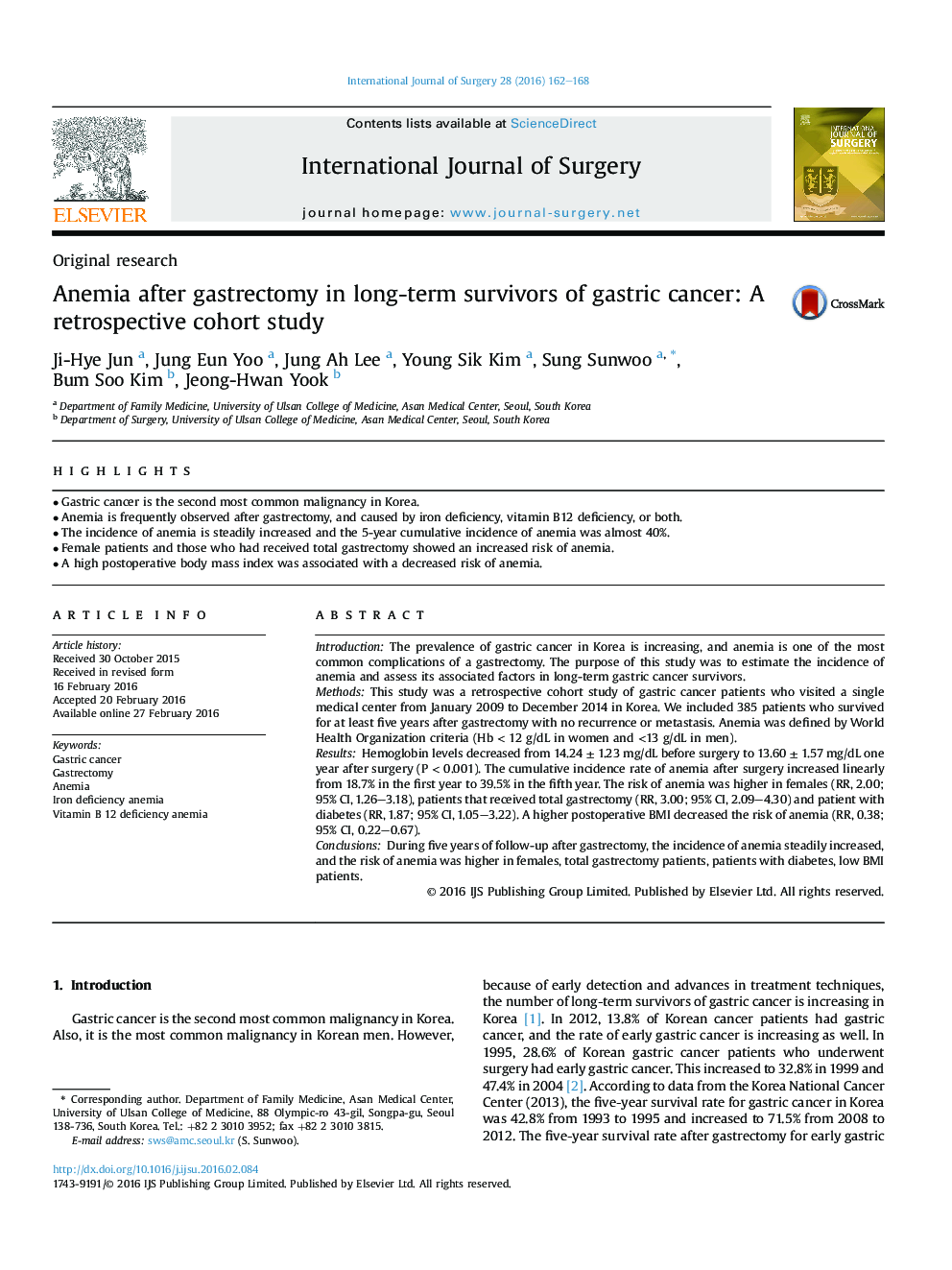| کد مقاله | کد نشریه | سال انتشار | مقاله انگلیسی | نسخه تمام متن |
|---|---|---|---|---|
| 4285472 | 1611959 | 2016 | 7 صفحه PDF | دانلود رایگان |
• Gastric cancer is the second most common malignancy in Korea.
• Anemia is frequently observed after gastrectomy, and caused by iron deficiency, vitamin B12 deficiency, or both.
• The incidence of anemia is steadily increased and the 5-year cumulative incidence of anemia was almost 40%.
• Female patients and those who had received total gastrectomy showed an increased risk of anemia.
• A high postoperative body mass index was associated with a decreased risk of anemia.
IntroductionThe prevalence of gastric cancer in Korea is increasing, and anemia is one of the most common complications of a gastrectomy. The purpose of this study was to estimate the incidence of anemia and assess its associated factors in long-term gastric cancer survivors.MethodsThis study was a retrospective cohort study of gastric cancer patients who visited a single medical center from January 2009 to December 2014 in Korea. We included 385 patients who survived for at least five years after gastrectomy with no recurrence or metastasis. Anemia was defined by World Health Organization criteria (Hb < 12 g/dL in women and <13 g/dL in men).ResultsHemoglobin levels decreased from 14.24 ± 1.23 mg/dL before surgery to 13.60 ± 1.57 mg/dL one year after surgery (P < 0.001). The cumulative incidence rate of anemia after surgery increased linearly from 18.7% in the first year to 39.5% in the fifth year. The risk of anemia was higher in females (RR, 2.00; 95% CI, 1.26–3.18), patients that received total gastrectomy (RR, 3.00; 95% CI, 2.09–4.30) and patient with diabetes (RR, 1.87; 95% CI, 1.05–3.22). A higher postoperative BMI decreased the risk of anemia (RR, 0.38; 95% CI, 0.22–0.67).ConclusionsDuring five years of follow-up after gastrectomy, the incidence of anemia steadily increased, and the risk of anemia was higher in females, total gastrectomy patients, patients with diabetes, low BMI patients.
Journal: International Journal of Surgery - Volume 28, April 2016, Pages 162–168
